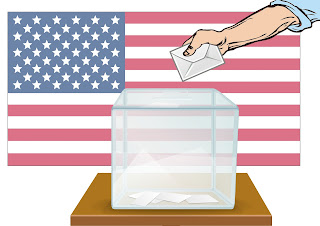The United States Electoral College system has been a cornerstone of American democracy since its inception. Designed by the framers of the Constitution, it was intended to balance the power between smaller and larger states and prevent a tyranny of the majority. However, over the years, the Electoral College system has faced numerous criticisms. This blog post will delve into the mechanics of the Electoral College, its intended purpose, and the criticisms it has garnered.
Understanding the Electoral College System
The Electoral College is the mechanism through which the President of the United States is elected. Rather than a direct popular vote, the system employs a group of electors, equal in number to the state's congressional delegation (senators and representatives combined). The total number of electors across all states is 538, with 270 electoral votes needed to win the presidency.
Each state has a set of electors who cast their votes based on the outcome of the popular vote within their state. The winner-takes-all approach is used by most states, where the candidate who receives the most popular votes in the state wins all of its electoral votes. However, Nebraska and Maine allocate their electoral votes based on the proportion of the popular vote each candidate receives.
Intended Purpose and Advantages
The framers of the Constitution had several reasons for instituting the Electoral College system. Firstly, they sought to balance the interests of smaller and larger states. The number of electors each state receives is equal to its representation in Congress, ensuring that less populous states still have a voice in the presidential election.
Secondly, the Electoral College was seen as a safeguard against uninformed or unqualified voters. The electors, who were expected to be more knowledgeable about national affairs, could act as a buffer between the populace and the presidency, preventing the election of someone unfit for the role.
Criticism 1: Disproportionate Voting Power
One of the most significant criticisms of the Electoral College system is the disproportionate voting power it grants to citizens of different states. Due to the winner-takes-all approach, candidates often focus more on swing states with a large number of electoral votes, while ignoring states that are solidly red or blue. This can lead to situations where a candidate wins the popular vote nationwide but loses the electoral vote, as seen in the 2000 and 2016 elections.
Criticism 2: Possibility of Electoral "Faithless" Electors
While rare, the possibility of "faithless" electors remains a concern. These are electors who do not vote for the candidate they were pledged to support. Although most states have laws or party pledges to prevent this, instances have occurred where electors have cast their votes against the will of the voters.
Criticism 3: Undermining the Principle of "One Person, One Vote"
The winner-takes-all approach can undermine the principle of "one person, one vote." In this system, a candidate can win all of a state's electoral votes with a slim margin of the popular vote. This means that the votes of citizens who supported the losing candidate effectively go unrepresented in the electoral outcome.
Criticism 4: Discouraging Voter Turnout
Critics argue that the Electoral College can discourage voter turnout, particularly in "safe" states where the outcome is all but predetermined. Voters may feel that their vote does not matter as much, leading to apathy and lower participation rates.
The United States Electoral College system is a unique and intricate method of electing the President. While it was designed to balance interests and prevent hasty decisions, it has faced increasing scrutiny over the years. Critics argue that it can lead to disproportionate voting power, undermine the principle of "one person, one vote," and discourage voter participation. Despite its flaws, the Electoral College system remains a fundamental aspect of American democracy, prompting ongoing discussions about potential reforms or alternatives.



.jpg)


No comments:
Post a Comment